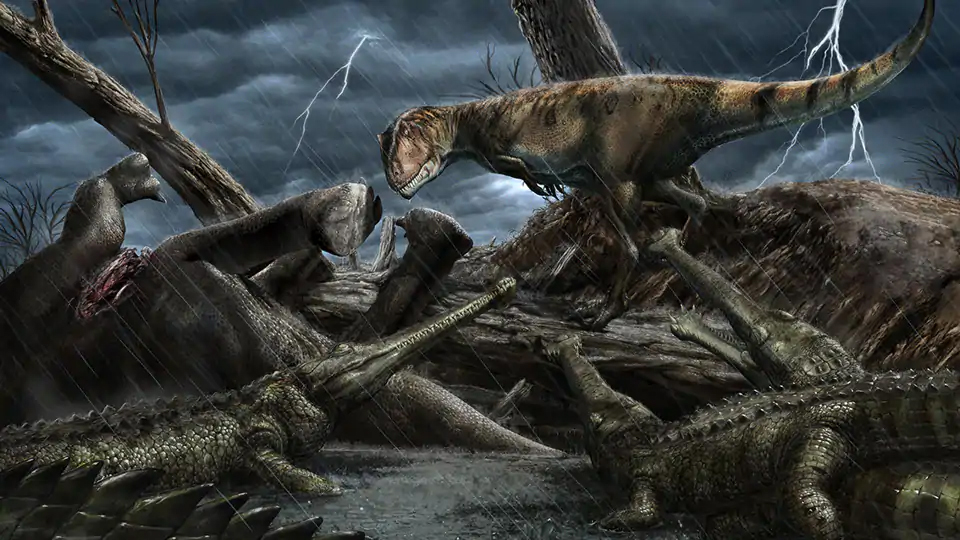As the coronavirus continues to spread unabated across borders, the world right now may seem to be an unsafe place. But you can breathe a little easy knowing that the earth at present, or a certain part of the planet, is still not as dangerous as it was millions of years ago.
Scientists have revealed ‘the most dangerous place in the history of planet earth’, where human beings ‘wouldn’t have lasted very long’.
100 million years ago, ferocious predators, including flying reptiles and crocodile-like hunters, made the Sahara the most dangerous place on Earth, according to a review study done by international team of palaeontologists.
The review is based on the study of almost 100 years of fossil vertebrates from an area of Cretaceous rock formations in south-eastern Morocco, known as the Kem Kem Group.
Published recently in the journal ZooKeys, it “provides a window into Africa’s Age of Dinosaurs”, according to its lead author Dr Nizar Ibrahim, an assistant professor of Biology at the University of Detroit Mercy and Visiting Researcher from the University of Portsmouth.
“This was arguably the most dangerous place in the history of planet Earth, a place where a human time-traveller would not last very long,” said Dr Ibrahim in a statement.
According to the study, about 100 million years ago the area was home to a vast river system, filled with many different species of aquatic and terrestrial animals. Fossils found in the Kem Kem Group include three of the largest predatory dinosaurs ever known as well as several predatory flying reptiles and crocodile-like hunters.
Many of these predators relied on the supply of fish in the river system, says co-author Professor David Martill from the University of Portsmouth.
“This place was filled with absolutely enormous fish, including giant coelacanths and lungfish. The coelacanth, for example, is probably four or even five times large than today’s coelacanth. There is an enormous freshwater saw shark called Onchopristis with the most fearsome of rostral teeth, they are like barbed daggers, but beautifully shiny,” he said.

